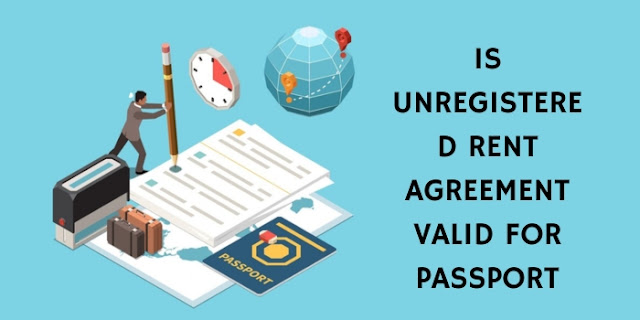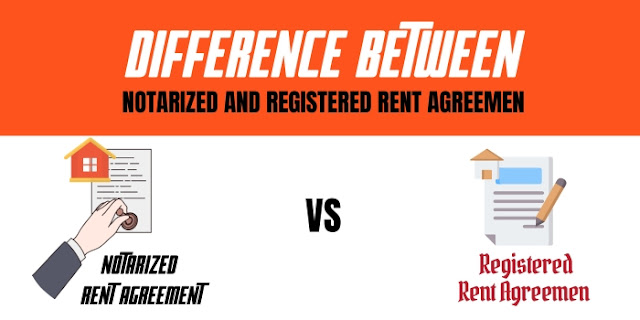Is Unregistered Rent Agreement Valid For Passport?
In today's globalized world, obtaining a passport is a crucial step for international travel. As part of the application process, one commonly required document is a rental agreement. However, questions often arise about the validity of unregistered rent agreements for passport applications. In this blog, we will delve into the intricacies of this issue, exploring the legal aspects and providing guidance for those navigating the passport application journey.
The Significance of a Rental Agreement for Passport Application
Before we delve into the unregistered vs. registered debate, it's important to understand why a rental agreement is necessary for a passport application. When applying for a passport, individuals are required to submit proof of residence as part of the address verification process. A rental agreement serves as a valid document that establishes the applicant's current address.
Registered vs. Unregistered Rent Agreements
Registered Rent Agreements: A Legal Safeguard
A registered rent agreement is a legally valid document that has been officially recorded with the local authorities. It provides a layer of legal protection to both the landlord and the tenant. The registration process involves submitting the agreement to the sub-registrar's office, and the agreement becomes a public record.
For passport applications, a registered rent agreement is generally considered more reliable, as it carries the stamp of legal approval. The authorities often view registered agreements as less prone to fraud or manipulation, instilling greater confidence in the document's authenticity.
Unregistered Rent Agreements: Navigating the Gray Area
The validity of unregistered rent agreements for passport applications is a topic that often sparks confusion. In many cases, authorities may accept unregistered agreements, but certain conditions must be met. It's crucial to understand the legal implications and potential challenges associated with relying on an unregistered agreement for passport verification.
Factors Influencing the Acceptance of Unregistered Rent Agreements
Local Regulations and Practices
The acceptance of unregistered rent agreements may vary based on local regulations and administrative practices. Some regions or passport offices may be more lenient, while others strictly adhere to the requirement of a registered agreement. Researching the specific guidelines of the local passport office is advisable to determine the level of acceptance for unregistered agreements.
Duration of the Lease
In some cases, authorities may consider the duration of the lease when evaluating the validity of an unregistered rent agreement. Short-term leases may be subject to more scrutiny, as they could be perceived as less stable or reliable. Longer-term leases, on the other hand, may be viewed more favorably.
Notarization and Witnesses
To enhance the credibility of an unregistered rent agreement, parties involved may choose to notarize the document or have witnesses present during the signing. These additional measures can add a layer of authenticity to the agreement, potentially increasing its acceptance during the passport application process.
Navigating the Passport Application Process with an Unregistered Agreement
If relying on an unregistered rent agreement for a passport application, it's essential to take proactive steps to ensure its acceptance:
Communication with Local Authorities
Engaging in open communication with the local passport office is crucial. Seeking clarification on their specific requirements and understanding the level of acceptance for unregistered agreements can help applicants navigate the process more effectively.
Supplementary Documentation
To strengthen the case for an unregistered agreement, applicants may consider providing supplementary documentation. This could include utility bills in the tenant's name, letters from the landlord, or any other documents that further validate the authenticity of the residence.
Legal Consultation
For those facing uncertainty or encountering challenges with an unregistered rent agreement, seeking legal advice is a prudent step. A legal professional can provide insights into local laws, potential risks, and strategies to address any issues that may arise during the passport application process.
Conclusion:
While registered rent agreements offer a clear legal advantage, unregistered agreements can still be accepted under certain circumstances. It's essential for individuals to navigate this process carefully, considering local regulations, the duration of the lease, and additional measures to enhance the credibility of the document. By staying informed and proactive, applicants can increase the likelihood of a smooth passport application experience, even with an unregistered rent agreement.
Written Shivani Singh



%20(18).jpg)